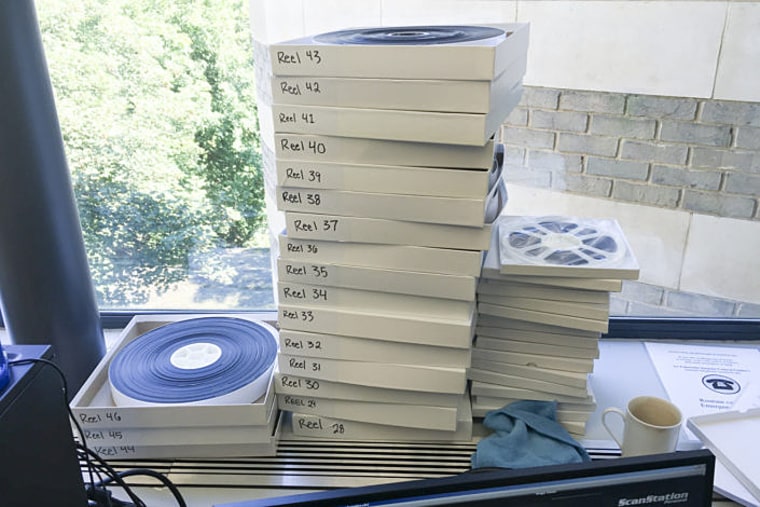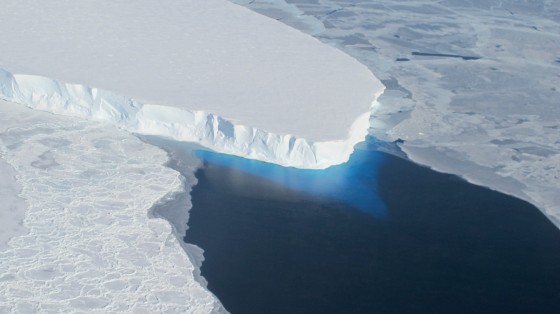One of Antarctica’s biggest and most unstable glaciers is thinning faster than scientists had realized, with one of its key ice shelves losing up to 33 percent of its ice over a 30-year period ending in 2009.
That’s the disturbing conclusion of new research on the Thwaites glacier, a Florida-size mass of ice in West Antarctica that is being closely watched because its meltwater threatens to raise sea levels around the world.
Thwaites has been losing ice rapidly as a result of warming ocean temperatures. If the glacier collapses, which computer models project could occur in 50 to 100 years, researchers say global sea levels would rise by two feet, reshaping coastlines and flooding low-lying cities like New York and Miami. In February, a giant cavity 6 miles long and 1,000 feet deep — big enough to fit two-thirds of Manhattan — was detected beneath the Thwaites glacier, indicating that the underside of the glacier is being hollowed out at the same time that the glacier retreats.
For the research, published Sept. 2 in Proceedings of the National Academy of Sciences, a team of scientists led by Stanford University geophysicist Dustin Schroeder compared new Antarctic radar data with data recorded on 35-millimeter film from 1971 to 1979. The archival data — 1,000 reels in all — had been obtained during an ambitious aerial survey of the region made by American, British and Danish scientists.

“It was a massive undertaking to map Antarctica,” Schroeder said of the survey. “They didn’t know what the shape of the continent was, whether it had mountains — this wasn’t about glaciology or studying ice sheets. It was really fundamental Earth exploration.”
The archival data allowed the researchers to peer further back in time than had previously been possible and gave them a better sense of the melting that has been occurring at the base of the ice shelf.
“We have surface observations from satellites that go back quite far, but for the subsurface — what’s happening underneath the ice sheet — the record is not as expansive and doesn’t go back as far,” Schroeder said.
Eric Rignot, a University of California glaciologist who was not involved with the new study, hailed the research and said it showed how historical data could improve the accuracy of glacier research.
“It makes a world of difference,” Rignot said of historical data. “It’s dangerous to interpret changes based on a few years of data. The long records give us insight into decadal variability and long-term trends. In climate science, you’re not happy with five years, or even 10 years. If you have several decades of data, you feel like now you can see things clearly.”
Rignot said scientists could conduct similar research on polar regions using other historic data, including archival footage taken of Antarctica’s coastline by the U.S. military in 1947.
“It was called Operation Highjump and they took aerial photos of almost the entire coastline of Antarctica,” he said. “It was probably the first time that mankind explored the entire periphery of the continent. This data has been recently digitized and made public.”
The footage used for the new research is also publicly available online at the Stanford Digital Repository. Schroeder said he hoped other scientists would comb through the archive to see what other discoveries might be made. “It’s a ton of data,” he said.
Want more stories about science?
- Are we living in a simulated universe? Here's what scientists say.
- Einstein showed Newton was wrong about gravity. Now scientists are coming for Einstein.
- Scientists are searching for a new universe. It could be sitting right in front of you.
Sign up for the MACH newsletter and follow NBC News MACH on Twitter and Facebook and Instagram.


